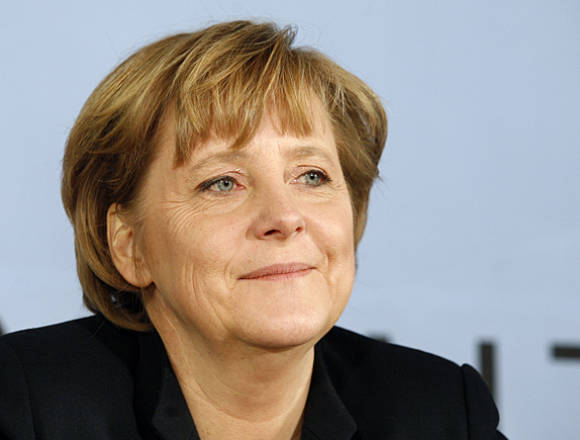German economy turns into Merkel's election trump card
 Berlin - The German economy is turning into something approaching a trump card for Chancellor Angela Merkel as the nation's election campaign enters its final days.
Berlin - The German economy is turning into something approaching a trump card for Chancellor Angela Merkel as the nation's election campaign enters its final days.
Only a matter of months ago the sense of economic gloom was deepening as the global recession tightened its grip on Europe's biggest economy and fears were growing that Germans would go to the polls this year against the backdrop of lengthening jobless queues.
But with the September 27 election now just days away, official data has shown Germany emerging earlier than forecast from recession and the labour market managing to withstand the fallout from what has been dubbed the Great Recession.
This has helped to strengthen the 55-year-old Merkel's claims that she has successfully steered the nation through its steepest economic decline in a generation.
"For the near term, the outlook for the German economy looks bright," said ING Bank economist Carsten Brzeski. "The German economy has the potential to lead Europe out of the recession," he said.
Indeed, twelve months after the implosion of the US investment bank Lehman Brothers plunged the world economy into crisis, Merkel is heading to the polls with business confidence in Germany at a 12-month high and consumer confidence in the nation having hit its highest level in 15 months.
The latest crop of key economic data before voting day showed seasonally adjusted unemployment falling unexpectedly in August by 1,000. Analysts had forecast a 30,000 rise.
At the same time, German factory order books have been filling up, key exports have risen more than expected and retail sales are climbing.
Merkel has also been at the forefront of the international moves for a overhaul of the world financial system by helping to shape the reform agenda drawn up by the Group of 20 (G20) world's most powerful economies.
Moreover, just two days before Germans go to the polls, Merkel will be again able to reaffirm her credentials as an economic crisis manager when she joins the G20 leaders in Pittsburgh for a summit aimed driving forwards the cause of global financial market reform.
The good domestic economic data meanwhile has robbed Merkel's political opponents of the chance of firing up an otherwise lacklustre election campaign.
Underpinning Germany's surprise early return to an economic growth path has been the Merkel-led government's 85-billion-euro (123-billion-dollar) fiscal stimulus package.
More recently, the government has unveiled a 17.5-billion-euro business loan program to guard against a credit crunch derailing the recovery.
At the same time, Berlin has extended state subsidized short-term labour market contracts, which have meant that employers have been able to avoid mass layoffs in the face of the contraction of the country's economy.
The surprise turnaround in the German economy has also helped to temper earlier criticisms, notably from big business, who attacked Merkel over her failure to live up to her 2005 election manifesto promises of much more radical economic and labour market reform.
But the rollout of the fiscal stimulus package and the economic crisis has left Germany with a gaping budget deficit of a 17.3-billion-euro (24.7-billion-dollar) budget deficit during the first half of 2009, compared with a 7-billion-euro surplus during the same period last year.
Nevertheless, Germany's budget deficit during the first six months of 2009 came in at 1.5 per cent of gross domestic product, which meant it was still comfortably within the strict 3-per-cent rule for members of Europe's common currency, the euro. (dpa)